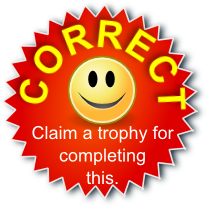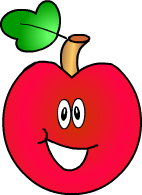Drag the numbers into the red cells so that the sums of the three numbers in each row and column are prime numbers.

There are 1152 different ways of making a prime square using these numbers. How many of them can you find?
Your answer is not correct.
1
2
3
4
5
6
7
8
9




Transum,
Saturday, February 17, 2018
"One method of finding a solution to a puzzle in which the digits one to nine have to be arranged in a particular formation is by trying every different permutation. This strategy however is very time consuming. Even if it only took one second to arrange the numbers and check whether a solution has been found, you would need to allow over one hundred hours to complete the task!
Developing a strategy with some insight or consideration of the number patterns might be a better course of action. Good Luck! "